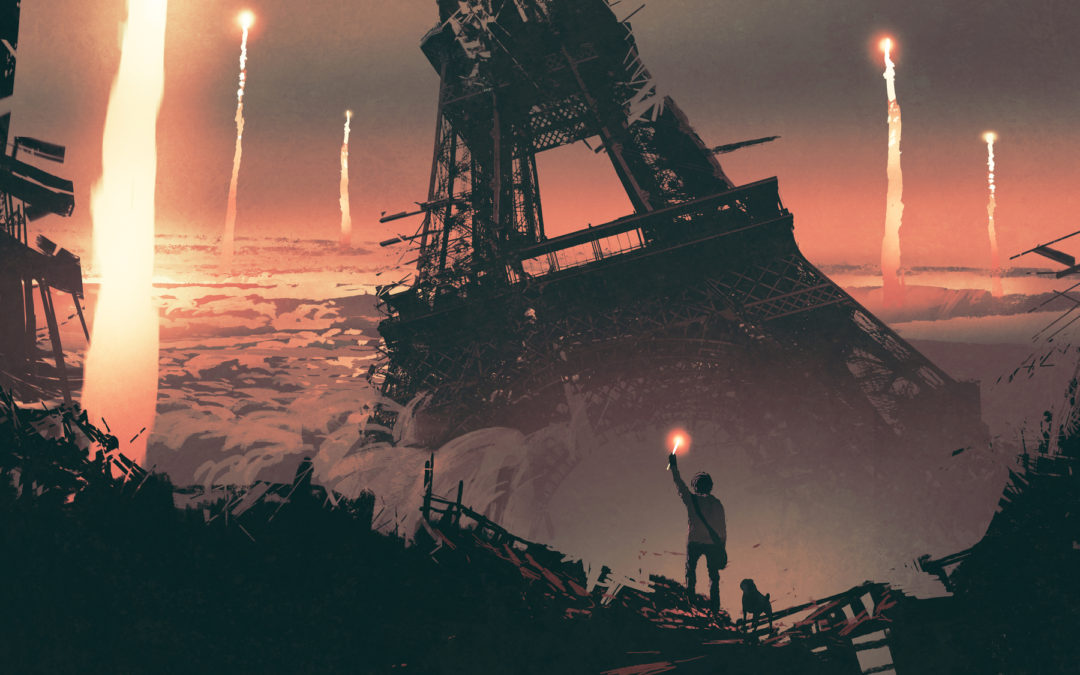If you’re like us, you’ve probably seen lots of YA books like the Hunger Games, Divergent, and the Maze Runner coming out. Chances are you’ve read them and watched the movies (and complained about how much they butchered the books. That always happens. Ugh.)
These books fall into two categories: dystopian and post-apocalyptic. So, what on earth is the difference? There are plenty of corrupt societies and blasted landscapes to go around. Some book series, like Harper North’s Manipulated series, have a dystopian government who rose to power because of an apocalypse. So, what to call this? While these genres are closely related, if we look at a couple of things, it’s pretty easy to figure things out:
1: What’s the main thing trying to kill you? Is your government spying on your thoughts with electrodes attached to your brain, or does Hump Day consist of dodging plague-infested rainwater that’s killed all your neighbors? Happy times. If your society or government is trying to crush you, it’s dystopian. If nature (or some man-made disaster) is what’s breathing down your back, it’s apocalyptic or post-apocalyptic.
2: How are you trying to defeat this crap? “Worlds with totalitarian governments are fun to live in.” – No one ever. Also, “Life being only about survival is awesome.” – Also no one ever.
How you’ll deal with your crap situation tells us what genre this is. After a plague wipes out most of humanity, what you do when you’re done freaking out? Since life sucks now, you’ll find others to play cards with, fall in love, and rebuild society! Get a sense of meaning back by finding your family! Of course, you’ll have to dodge the jerkwads who want to steal from you (or worse.) There’s a reason heroines on all those post-apocalyptic covers are carrying guns. Oh, and you’ll have to deal with whatever killed a bunch of people. That thing is probably still lurking around and it’s going to fill you with existential dread the whole time. If this is the case, check the box for post-apocalyptic.
But what if it’s society that never let you find meaning in the first place? Oh, governments. Use your brains for once. Let’s forbid falling in love, leaving the mines, or choosing your own career! That won’t cause a revolution, because we have good reasons for oppressing people! (Insert propaganda here, usually something about creating order.)
Uh, no. That girl on the bottom rung of society? She’s going to crush you because she’s just tasted the fact that life can have meaning. Well, eventually. Maybe she fell in love with a hot, forbidden guy or she saw the surface world (and how you jerks live) for the first time. Next, she’ll stumble into a revolution in one way or another, and when that happens, your fate is sealed. Sure, you can keep crushing the hope of people who see through your crap, but they’ll win. Eventually. If this happens, check the box for dystopian.
Since the government is the main enemy in the Manipulated series, and the heroine finds herself fighting those in power and seeking a life she’s never had before, let’s check the box for dystopian.
We would, too, if we lived in a world like that. But at least we can hate it from the comfort of our couches or plane seats. Whether we’re crossing a nuclear wasteland or exploring a world where emotions are forbidden, we can look at our own lives and realize they (maybe) aren’t so bad after all.




